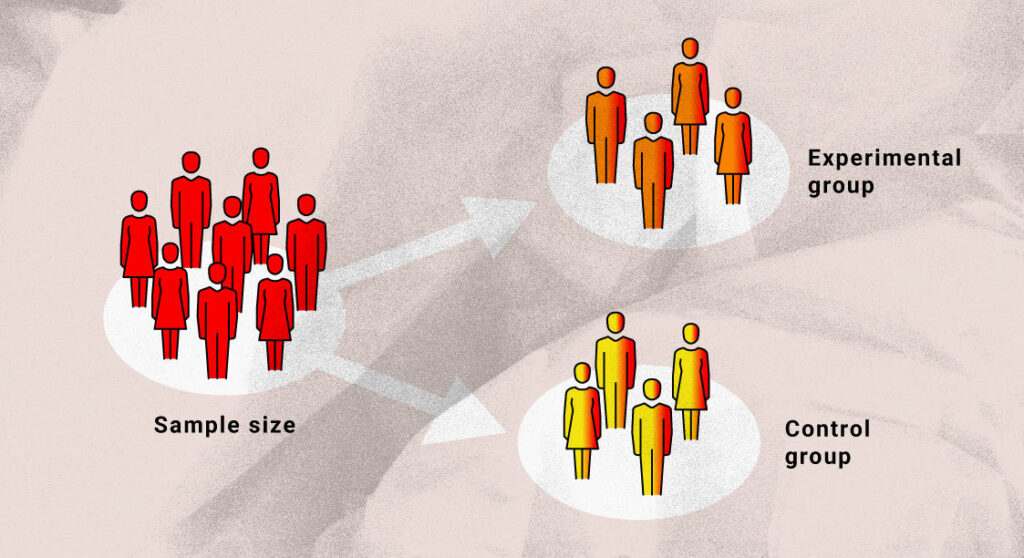The concept of an experimental group is a fundamental component of scientific research, particularly in fields such as psychology, medicine, and social sciences. It serves as a crucial element in studying cause-and-effect relationships and investigating the effectiveness of interventions or treatments. In experimental research, the experimental group is the group that receives the intervention or treatment being studied, allowing researchers to compare and analyze its effects. Understanding the purpose, characteristics, and considerations associated with the experimental group is essential for conducting rigorous and reliable scientific investigations.
Definition of Experimental Group
The experimental group is a vital component in scientific research, particularly in experimental studies. It refers to a specific group of participants or subjects who receive a particular treatment, condition, or intervention that is being studied. The experimental group allows researchers to explore the effects or outcomes resulting from the manipulation of a variable of interest. By comparing the experimental group to a control group, which does not receive the treatment, researchers can assess the impact of the manipulated variable. To learn more about the control group, access this website.
The experimental group plays a crucial role in providing insights into the causal relationships between variables and contributes to advancing knowledge in various fields of study. It helps researchers draw meaningful conclusions and make informed decisions based on the results obtained. Understanding the concept and importance of the experimental group is essential for researchers and students alike, as it enables them to design and conduct rigorous experiments, analyze data accurately, and draw valid conclusions from their research findings.

Purpose of an Experimental Group
The purpose of an experimental group is to investigate the effects or outcomes of a specific treatment, condition, or intervention. By assigning participants or subjects to the experimental group, researchers can manipulate an independent variable and observe how it influences the dependent variable. The experimental group allows researchers to test hypotheses, explore cause-and-effect relationships, and determine whether the treatment or intervention produces any significant changes or effects.
It serves as a comparison group to assess the impact of the manipulated variable, as it receives the specific treatment being studied. The purpose of the experimental group is to provide insights into the causal relationships between variables and to contribute to the accumulation of knowledge in a particular field. Through the use of an experimental group, researchers can draw conclusions about the effectiveness, efficacy, or impact of the treatment or intervention under investigation.
Characteristics of an Experimental Group
The characteristics ensure that the experimental group provides a basis for making valid inferences about the relationship between the treatment and the outcomes being studied. Some characteristics of an experimental group include the following:
Exposure to Treatment
The experimental group is exposed to the specific treatment, intervention, or condition being studied. This could be a new drug, an educational program, a modified environment, or any other variable under investigation.
Manipulated Variable
In experimental research, the independent variable is deliberately manipulated or controlled by the researchers. The experimental group receives the manipulated variable or treatment, which sets it apart from the control group.
Comparison with Control Group
The experimental group is compared to a control group, which does not receive the treatment or intervention. This allows researchers to assess the effects of the treatment by comparing the outcomes or responses between the two groups.
Random Assignment
Participants in the experimental group are randomly assigned to ensure that the groups are similar in terms of relevant variables, such as age, gender, or prior experience. Random assignment minimizes the influence of confounding factors and increases the validity of the results.
Data Collection
Data is collected from the experimental group to measure the outcomes or responses of interest. This could involve surveys, observations, tests, or other measurement methods depending on the research design and objectives.
Analysis of Results
The data collected from the experimental group is analyzed using appropriate statistical techniques to determine the significance and magnitude of the treatment effects. This analysis helps researchers draw conclusions about the impact of the treatment on the measured variables.
Examples of Experimental Groups
These examples illustrate how experimental groups are utilized in various research studies to assess the impact of specific interventions or treatments on outcomes of interest:
Drug Trial: In a drug trial, the experimental group would receive the new medication being tested, while the control group would receive a placebo or a standard treatment.
Educational Intervention: In an educational intervention study, the experimental group may receive a specific teaching method or curriculum, while the control group receives the conventional teaching approach.
Environmental Study: In an environmental study, the experimental group could be exposed to an altered environment, such as different lighting conditions or temperature, while the control group remains in the standard environment.
Exercise Program: In a study examining the effects of an exercise program, the experimental group would participate in a specific exercise regimen, while the control group would not engage in any structured exercise.
Behavioral Intervention: In a behavioral intervention study, the experimental group might receive behavioral therapy or intervention aimed at changing specific behaviors, while the control group does not receive the intervention.
Dietary Study: In a dietary study, the experimental group would follow a particular diet plan, such as a low-carbohydrate diet, while the control group maintains their regular diet.
Advantages and Disadvantages of an Experimental Group
Advantages of an Experimental Group
Controlled Conditions
The experimental group allows for the manipulation and control of variables, providing researchers with a controlled setting to study cause-and-effect relationships.
Comparative Analysis
By comparing the outcomes of the experimental group to a control group, researchers can determine the specific effects of the intervention or treatment being studied.
Precision
Experimental groups enable researchers to measure and quantify the effects of the intervention with a higher level of precision, enhancing the reliability of the study results.
Replicability
Experimental groups offer the opportunity for other researchers to replicate the study, further validating the findings and contributing to scientific knowledge.
Disadvantages of an Experimental Group
Ethical Considerations
In some cases, the experimental group may be subjected to potentially harmful interventions or treatments, raising ethical concerns regarding the well-being and informed consent of participants.
Limitations on Generalizability
Findings from the experimental group may not necessarily apply to the broader population, as the specific conditions and characteristics of the group may limit the generalizability of the results.
Time and Resource Intensive
Conducting experimental research requires significant time, effort, and resources, including recruiting participants, implementing interventions, and collecting and analyzing data.
Potential for Bias
Despite efforts to control variables, biases can still influence the outcomes in the experimental group, leading to biased or inaccurate results.
Ready-to-go templates in all popular sizes
Mind the Graph platform provides a comprehensive solution for scientists, offering a range of features that facilitate scientific communication and data visualization. One of the standout features is the availability of ready-to-go templates in all popular sizes. These templates serve as a time-saving resource, allowing scientists to quickly create visually appealing and professional graphics without the need for extensive design skills or starting from scratch.
Whether it’s creating research posters, presentations, infographics, or scientific illustrations, the platform’s diverse library of templates ensures that scientists can effectively communicate their findings and ideas in a visually engaging manner. With Mind the Graph platform, scientists can focus more on their research and let the templates provide the visual impact needed to effectively convey their scientific work.

Subscribe to our newsletter
Exclusive high quality content about effective visual
communication in science.





